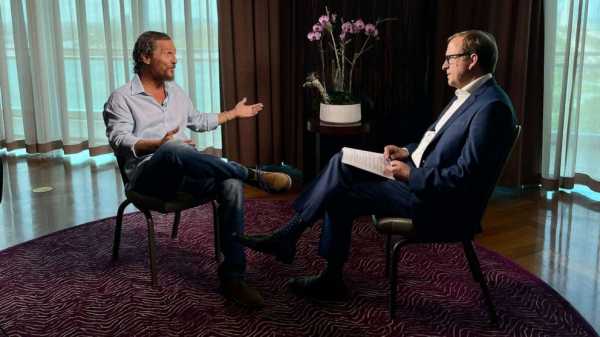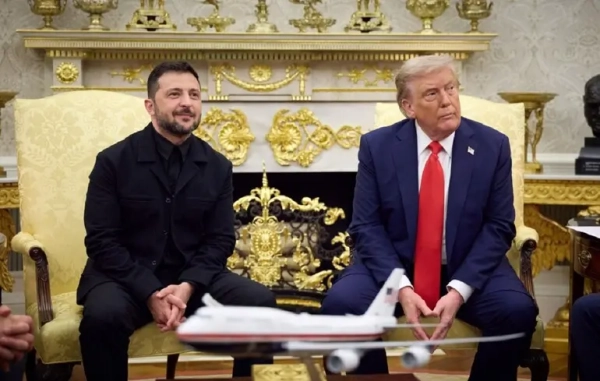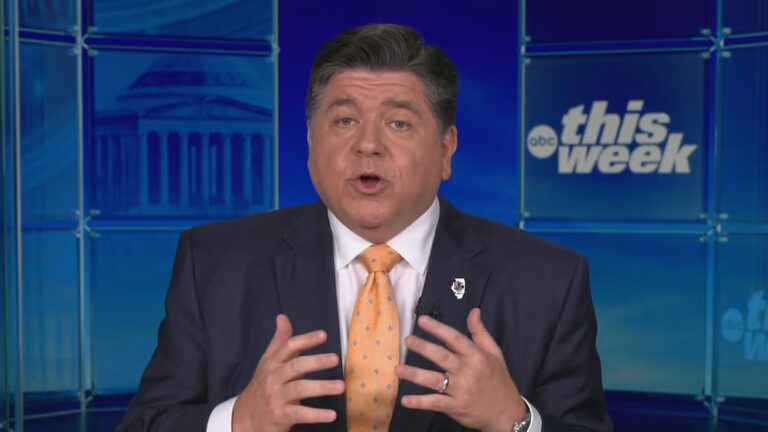A little more than a year after a gunman at Robb Elementary School in Uvalde, Texas, killed 19 children and two teachers, actor Matthew McConaughey hopes to make schools safer through his Greenlights Grant Initiative.
In an interview with ABC "This Week" co-anchor Jonathan Karl on Sunday, McConaughey, a Uvalde native, reflected on his experience in the weeks following the massacre, a period that saw him visit both his hometown and the White House — and he shared his thoughts on how people with differing values can find consensus on policies to reduce gun violence.
"My wife was out of the country," McConaughey said, recalling the aftermath of the shooting. "She heard about the news, immediately writes me and says, 'We got to go down there.' She cut her trip short, flew in. We packed up and headed out."
McConaughey and his wife, Camila, met the representative for Uvalde, Republican Rep. Tony Gonzales, who introduced them to relatives of the dead, McConaughey said.
"We had families invite us in to come for the first viewing of their child. And that, to us, felt like we were trespassing," McConaughey said. "But the mother and father go, 'No, please come in.' And when we left there, the consensus was, 'Can you help make their lives matter?' So that led to us ending up in D.C."
Not long after McConaughey's visit to the White House, in June 2022, Congress passed the Bipartisan Safer Communities Act (BSCA), the first major piece of gun legislation enacted into law in decades.
The bill approved funding for schools to address gun violence by increasing mental health support for students, enhancing background checks and supporting the implementation of "red flag" laws to temporarily prevent access to weapons for people who could be a danger to themselves or others.
But while the BSCA is "already working in some ways," there are also "billions of dollars that are still left to be spent," McConaughey said.
"Billions of dollars for school safety," Karl emphasized. "Great. That's awesome. And then you find out … a year later and the money hasn't gone out yet. Most of it hasn't."
In fact, McConaughey said, Rep. Gonzales told him and his wife that some three months after the Uvalde shooting, only 12 schools in the area had applied for government funding but zero of them had been awarded the money.
"What are we doing?" McConaughey said, adding, "That's a 0[%] success rate. One, way too few applications. No. 2, the 12 applications, we went 0-for-12?"
"The government admits that it shouldn't be this complicated," he said. (Government agencies have, more recently, announced hundreds of millions of dollars in grants to numerous recipients, including for mental health and public safety support.)
McConaughey hopes his work with his wife will be helpful, too.
"You got 14,000 something schools. This grant initiative is going to connect those districts to those billions of dollars that's there, available, and wants to be used to make our kids safe," he said.

Matthew McConnaughey speaks during an interview with ABC News’ Jon Karl.ABC News
More broadly, Karl asked McConaughey if he believes the way gun policy debates are framed becomes an obstacle to making change.
"A lot of people that consider themselves strong Second Amendment [supporters], they think any measure is a measure towards confiscating all guns. So how do you speak to those people?" Karl asked.
McConaughey said his solution starts simple.
"I'd change the word from [gun] 'control' to 'responsibility,'" he said.
"No one wants to be controlled," he continued. "But responsibility is still something that we can all go, 'Yeah, I'll take responsibility.' … The Second Amendment defenders could talk responsibility. They could look you in the eye and talk responsibility with someone from the other side of the aisle."
Karl noted polling that shows broad support for further regulations, such as universal background checks and waiting periods for firearm purchases — "yet none of those things have been done."
McConaughey said he believes that the majority public view on the issue is not being represented by politicians right now. "That math should add up. And right now, it doesn't," he said.
"Do you have advice to, particularly Democrats on this issue … do you have any advice on how they can speak?" Karl asked.
"There's a whole lot of Americans that need you to at least meet them where they are and what they're understanding and how they've grown up on this issue with guns in their lives and how they, most of them, do handle them responsibly," McConaughey said. "So don't cast them down as being archaic or cavemen."
Polarization can be a powerful force, McConaughey acknowledged, but so can compromise.
"We love the wreck. It's entertainment," he said, adding, "We don't love to watch health as much as. We like to watch disease. These two extremes have the microphone."
In light of McConaughey's increasingly outspoken views on gun policy and reducing gun violence, Karl asked if he could ever see himself seeking elected office. "Or can you do more outside? Like what you're doing here."
"There's a great question that I'm still answering," McConaughey said. "And as of right now, to be a private citizen with my wife and to come up with an idea like the Greenlights Grant Initiative — to work with the government publicly to help them, not doing the job for them, helping them pull off what they set out to do in the first place — there is an argument that that's more useful, what I'm doing right now, in a small way."
"But to do the kind of big change?" Karl followed up.
"Well, to do the big change … I'd have to be convinced that that's a category that I could be quite useful in," McConaughey said. "And it's something that I think about all the time."
"You do?" Karl said.
Of course, McConaughey said: "Starting as the man I am, as a concerned father, as a husband, as a person who believes in people, as a Texan, as an American is like, man, come on, I believe in us."
Sourse: abcnews.go.com






